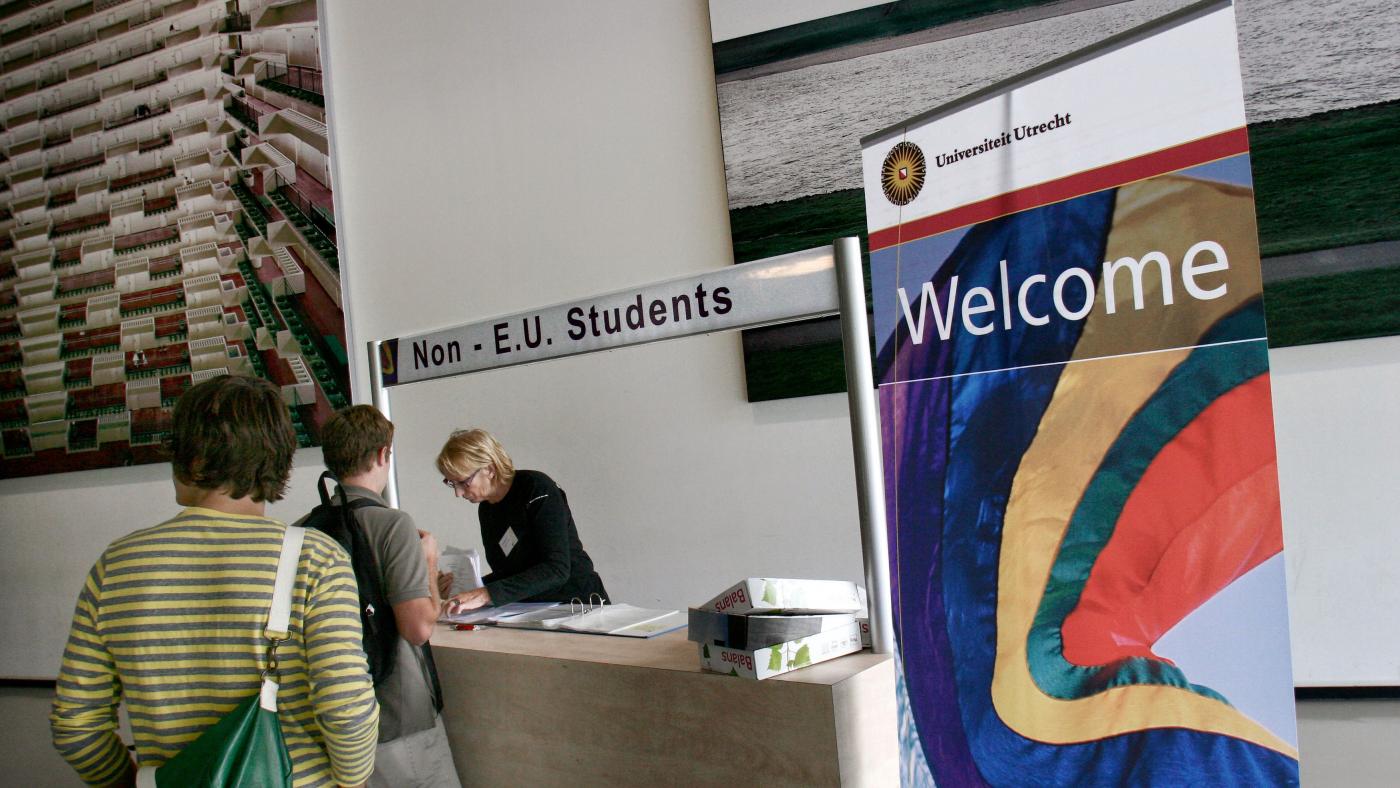Internationalisation
Minister of Education: 'We can't do much about English-taught programmes yet'

By law, degree programmes offered by universities and universities of applied sciences have to be given in Dutch, with a few exceptions. However, the exceptions seem “to be increasingly becoming the norm”, writes the minister in a letter to the Dutch Parliament, which has been uneasy about the internationalisation of Dutch higher education as of late.
There is disquiet in political circles over the internationalisation of higher education, partly because of the shortage of rooms to accommodate higher education students in the biggest cities of the Netherlands. Many politicians wonder where all the foreign students are supposed to live and whether there will be any room left for Dutch students. Many parties also fear that students’ command of the Dutch language is deteriorating.
The minister is currently working on a plan to improve the management of the influx of international students, but the House of Representatives is losing its patience. They want him to do something right now. For example, MP Pieter Omtzigt tabled a motion asking for the Inspectorate of Education to be stricter when enforcing the law. This motion got a lot of support in the House. Of the major parties, only Dijkgraaf’s party D66 voted against it.
But what can be done, exactly?
Powerless
According to Dijkgraaf's letter, the Inspectorate is currently powerless as all universities and universities of applied sciences comply with the prevailing law. Even the Dutch-Flemish accreditation association, NVAO, can't do anything other than clarify the rules.
At most, the minister can be stricter on new degree programmes, which will need to be "efficient" to be allowed to exist. The minister says that, if said programme is taught in English unnecessarily, that could be considered inefficient.
However, the minister has no desire to change the rules hastily when he's working on new laws and measures anyway. He would rather spend the summer making interim arrangements about the language of instruction with the universities' administrators.
Background
To stimulate administrators to deliberate meaningfully, Dijkgraaf outlines the context and intentions of the current law in a five-page document. The most eye-catching passage relates to fostering “communication skills in Dutch”.
The present law says that degree programmes must foster the Dutch language skills of the Dutch students enrolled. But it is up to each programme to decide how to do this and they are not held accountable for this work. There is no "obligation of result".
But those results matter, stresses Dijkgraaf. “Good communication skills are not a by-product but an essential part of every higher education degree”. He believes this can be included in the quality assessment of higher education at any time.
Plans
Earlier this year, the minister unveiled his plans for getting a grip on internationalisation, in general lines. If it were up to him, all foreign students would have to learn some Dutch. But he has more changes in mind, such as introducing a limit to the number of students allowed to follow the English-language tracks. This way, programmes would remain accessible to Dutch students but they would no longer be overrun by students from other countries.
At the same time, he does not believe in closing the borders. In his view, higher education institutions close to the German and Belgian border are in a "different situation". He wouldn't like to establish any obstacles for study programmes in sectors lacking manpower in the labour market. Ultimately, he aspires to some sort of "centralised control" to manage the influx of international students.
Motion
But that is not what this letter is about. It looks like its main purpose is to curb the impatience of the members of Parliament. Omtzigt’s motion about law enforcement was adopted on February 7, so the Minister had to respond to it officially at some point. His letter strikes a balance between an update (this is what we are working on), a reflection (this was what we meant to do) and a plea to administrators (be thorough).
In an address at Maastricht University last September, the minister said that it has become a tradition for politicians to start complaining about internationalisation at the start of the academic year. However, he does not want to be rush because "clearly, internationalisation offers huge benefits to the Dutch labour market and the quality of our education”.